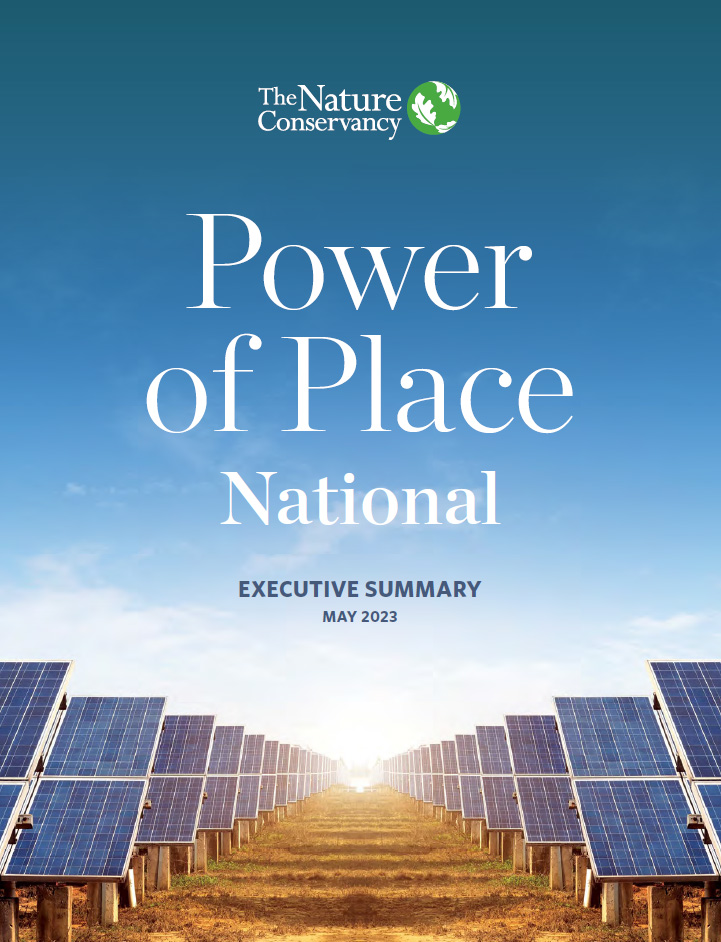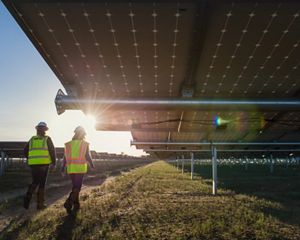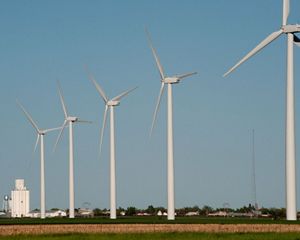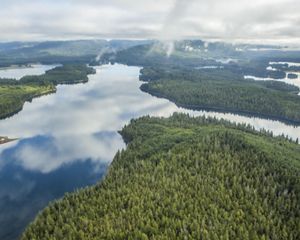Power of Place: Clean Energy Solutions that Protect People and Nature
TNC’s national report can help energy planners and policymakers execute net-zero strategies that maximize benefits for climate, nature and people.

Power of Place—National
Read the ReportThe United States needs to build an unprecedented amount of clean energy to reach net-zero carbon emissions by 2050. Power of Place-National lays out a vision and recommendations that steer energy planners and policymakers toward thoughtful net-zero strategies and clean energy solutions that benefit climate, conservation and communities.
Global Insights.
Check out our latest thinking and real-world solutions to some of the most complex challenges facing people and the planet today.
The News Is Good:
With careful and coordinated planning and robust community engagement, the U.S. can build the clean energy infrastructure needed for economy-wide, net-zero emissions by 2050 while avoiding most impacts to sensitive natural and working lands.
Power of Place - National Resources
- Power of Place—National Report (.pdf)
- Fact Sheet (.pdf)
- Environmental Data
- Technical Briefing Deck (.pdf)
What Happens When We Take the Power of Place Approach to Renewable Energy Planning and Development?
Climate: We achieve net-zero emissions nationwide by 2050.
Conservation: Most sensitive wildlife and habitat avoid harm from development of new clean energy infrastructure.
Communities: New clean energy opportunities are created in areas that have historically been economically driven by the fossil fuel industry.
Crops: Significant acreage of highly productive croplands avoid impacts of new clean energy development.
Cost: Clean energy infrastructure, which improves energy efficiency, is built cost-effectively.
More Power of Place Resources
-
Power of Place-West is The Nature Conservancy’s study that identifies the optimal pathway to reach net zero emissions by 2050 across the 11 Western states.
Working with industry-leading energy researchers, we combined best-in-class renewable energy modeling tools with the latest ecosystem and wildlife habitat data to advise the deployment of clean energy solutions and infrastructure across the West.
Download Power of Place West Report (.pdf)
Publication: Minimizing conservation impacts of net zero energy systems in the western United States
Power of Place West Geospatial Data
Technical Briefing (.pdf)
Web Presentation (350MB mp4)
-
Voices from the West is the companion report to Power of Place-West. Tribal lands account for 7% of the lands within the 11 Western states and Indigenous Peoples have extensive knowledge and experience effectively managing and stewarding lands across the West.
The Nature Conservancy interviewed leaders from Tribal and Indigenous communities to learn about their experiences with energy development. The report provides a perspective on the importance of including Tribal voices in planning for renewable energy and infrastructure.
-
Power of Place-California is the study that started them all. TNC's projections are that California may need between 1.6 and 3.1 million acres of wind and solar by 2050 to decarbonize the electricity system and support the movement to “electrifying everything."
In Power of Place-California, released in June 2019, TNC found that incorporating nature at the outset of energy planning not only results in lower impacts to wildlife and habitat, but helps direct new clean renewable energy investments to the places where they can be developed with more certainty.
Download
Read the Power of Place report to see how energy planning and policy can achieve better outcomes for climate, conservation and communities.
Download


